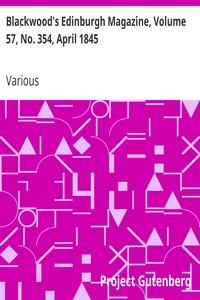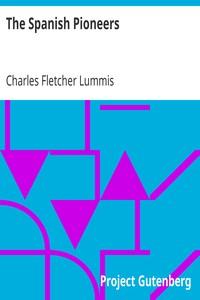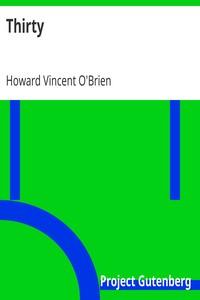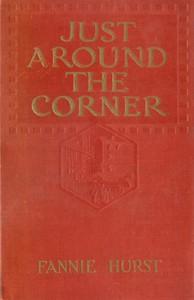Read this ebook for free! No credit card needed, absolutely nothing to pay.
Words: 70331 in 11 pages
This is an ebook sharing website. You can read the uploaded ebooks for free here. No credit cards needed, nothing to pay. If you want to own a digital copy of the ebook, or want to read offline with your favorite ebook-reader, then you can choose to buy and download the ebook.


: Blackwood's Edinburgh Magazine Volume 57 No. 354 April 1845 by Various - Scotland Periodicals; England Periodicals Blackwood's Edinburgh Magazine
"Sum pius AEneas, fam? super aethere notus,"
What a difference between the thought in the two poets, and the interest which their words excite in the breast of the reader!
Modern partiality cannot claim for Tasso the merit of having conceived a band of heroes whose characters were as strongly marked, or boldly drawn, as those of the Grecian bard; yet may it justly claim for the Italian poet the second honours. Tasso did not draw his characters from nature, like Homer; he lived at a period when the manners of the heroic age had passed away, and the recollections of it were preserved only in the stanzas of poetry and the romances of the Troubadours; yet did the force of his genius, the elevation of his sentiments, the loftiness of his conceptions, in a great measure supply the defect, and produce a magnificent, and to this day unequalled, picture of the chivalry of modern Europe. Godfrey of Bouillon is the model of a Christian hero whose arm has been devoted to the sacred lance; antiquity did not, and could not, conceive any such character. Hector is the nearest approach to it; but the patriotism of the Trojan chief is mingled with his domestic affections; it is for his father, his wife, his child, his hearth, his country, that he fights. In Godfrey, all these affections, warm and ennobling as they are, appear to be obliterated by the perpetual sense of a sacred duty superior to them all--by the intensity of the pious fervour which had concentrated all earthly affections. He is the personification of the Church militant, combating for its Saviour's cause. The profound feelings, the self-negation, the martyr-like spirit which had been nursed for centuries amidst the solitude of the cloister, appears in him brought forth into action, and producing the most intense enthusiasm, yet regulated by the caution of Ulysses, combined with the foresight of Agamemnon, sustained by the constancy of Ajax.
Rinaldo, youthful, vehement, impassioned, is the ideal of a hero not yet weaned from the passions of the world. Vehement, capricious, and irascible, he disturbs, like Achilles, the council of the chiefs by his wrath, and is seduced by the beauty of Armida to abandon the cause of the cross; yet even in her enchanted gardens, and when surrounded by all that can fascinate the imagination and allure the senses, the sparks of a noble nature are not extinct in his breast; he is recalled to his duty by the sight of her warriors; he flies the arms of the syren; he penetrates with invincible courage the enchanted forest; and when he descends purified from the stains of the world from the lofty mountain, on whose summit at sunrise he had dedicated himself to God, he is the worthy and invincible champion of the cross. Not less bold than his youthful rival, not less enthusiastic in his affections, Tancredi is the victim of a romantic passion. But it is no enchantress for whom he pines; it is no seducing frail one who allures him from the path of duty. Clorinda appears in the Saracen ranks; her arms combat with heroic power for the cause of Mahomet; the glance which has fascinated the Christian knight came from beneath the plumed helmet. Lofty enthusiasm has unstrung his arm--devoted tenderness has subdued his heart--the passion of love in its purest form has fascinated his soul; yet even this high-toned sentiment can yield to the influences of religion; and when Tancredi, after the fatal nocturnal conflict in which his sword pierced the bosom of his beloved, is visited by her in his dreams, and assured that she awaits him in Paradise, the soul of the Crusader is aroused within him, and he sets forth with ardent zeal to seek danger and death in the breach of Jerusalem. It cannot be said that these characters are so natural as those of Homer, at least they are not so similar to what is elsewhere seen in the world; and therefore they will never make the general impression which the heroes of the Iliad have done. But they are more refined--they are more exalted; and if less like what men are, they are perhaps not the less like what they ought to be.
How is it, then, if Virgil is so inferior to Homer and Tasso in the unity of action, the concentration of interest, and the delineation of character, that he has acquired his prodigious reputation among men? How is it that generation after generation has ratified the opinion of Dante, who called him his "Divine Master"--of Petrarch, who spent his life in the study of his works? How is it that his verses are so engraven in our recollection that they have become, as it were, a second nature to every cultivated mind, and insensibly recur whenever the beauty of poetry is felt, or the charms of nature experienced? Rest assured the judgment of so many ages is right: successive generations and different nations never concur in praising any author, unless his works, in some respects at least, have approached perfection. If we cannot discern the beauties, the conclusion to be drawn is that our taste is defective, rather than that so many ages and generations have concurred in lavishing their admiration on an unworthy object. Nor is it difficult to see in what the excellence of Virgil consists; we cannot read a page of him without perceiving what has fascinated the world, without concurring in the fascination. It is the tenderness of his heart, his exquisite pathos, his eye for the beauty of nature, the unrivalled beauty of his language, which have given him immortality, and to the end of time render the study of his works the most perfect means of refining the taste and inspiring a genuine feeling of poetic beauty.
"Tityre, tu patulae, recubans sub tegmine fagi, Sylvestrem tenui musam meditaris avena; Nos patriae fines et dulcia linquimus arva. Nos patriam fugimus: tu, Tityre, lentus in umbra, Formosam resonare doces Amaryllida sylvas."
"Thus he spoke; my soul was crushed within me; I sat weeping on the sand; nor had I the heart to wish to live, and behold the light of the sun." Here is the pathos of nature: "Rachel weeping for her children, and would not be comforted, because they are not."
"Hinc ad Tarpeiam sedem et Capitolia ducit, Aurea nunc, olim sylvestribus horrida dumis. Jam tum religio pavidos terrebat agrestes Dira loci; jam tum sylvam saxumque tremebant. 'Hoc nemus, hunc,' inquit, 'frondoso vertice collem, Quis deus incertum est, habitat deus: Arcades ipsum Credunt se vidisse Jovem, cum saepe nigrantem AEgida concuteret dextr? nimbosque cieret.'
What Homer was to Virgil, and Ariosto to Tasso, that Michael Angelo was to RAPHAEL. Though both these illustrious men lived in the same age, yet the former was born nine years before the latter, and he had attained to eminence while his younger rival was yet toiling in the obscurity of humble life. It was the sight of the magnificent frescoes of Michael Angelo that first emancipated Raphael from the stiff and formal, though beautiful style of his master, Pietro Perugino, and showed him of what his noble art was susceptible. So great was the genius, so ardent the effort, of the young aspirant, so rapid the progress of art in those days, when the genius of modern Europe, locked up during the long frost of the middle ages, burst forth with the vigour and beauty of a Canadian spring, that he had brought painting, which he had taken up in a state of infancy in the studio of Pietro Perugino, to absolute perfection when he died, at the age of thirty-seven. Seventeen years, in Raphael's hands, sufficed to bring an art as great and difficult as poetry to absolute perfection! Subsequent ages, vainly as yet attempting to imitate, can never hope to surpass him. How vast must have been the genius, how capacious the thought, how intense the labour, of the man who could thus master and bring to perfection this difficult art, in a period so short as, to men even of superior parts and unwearied application, barely to gain the command of the pencil!
In modern painting, as it appeared in the hands of Raphael and Michael Angelo, a wider range was attempted: more spiritual and touching objects had come to engross the human mind. The mere contemplation of abstract character--its delineation by the graphic representation of the human form, had ceased to be the principal object of genius. The temple of the unknown God was no longer to be filled with idols made under image of man. The gospel had been preached to the poor; the words of mercy and peace had been heard on the earth. Painting had come to be the auxiliary of religion; it was in the churches of a spiritual and suffering faith that its impression was to be produced. Calvary was to be presented to the eye; the feeling of the centurion. "Truly this man was the Son of God," engraven on the heart. It was to the faithful who were penetrated with the glad words of salvation, that the altar-pieces were addressed; it was the feeling of the song of Simeon that had gone forth on the earth. It was those divine feelings which painting, as it arose in modern Europe, was called to embody in the human form; it was to this heavenly mission that the genius of Italy was called. And if ever there was a mind fitted to answer such a call--if ever the spirit of the gospel was breathed into the human breast, that mind and that breast were those of Raphael.
Superficial writers will ask, what has Raphael to do with Virgil? mere artists will enquire, how they are to be benefited by the study of Tasso? Those, again, who have reflected on the means by which the higher stages in any art are attained, will acknowledge that, at a certain elevation, their principles are the same.
To move the heart, whether by painting, poetry, or eloquence, requires the same mind. The means by which the effect is to be produced are not different. The one works, indeed, with the pencil, the other with the pen; the one composes in verse, the other in prose--but what then? These are the means to the end, they are not the end itself. There are many avenues to the human heart, but the inner doors in them all are to be opened only by one key, and that key is never denied to the suit of genius.
Free books android app tbrJar TBR JAR Read Free books online gutenberg
More posts by @FreeBooks

: Years of Plenty by Brown Ivor John Carnegie - University of Oxford Fiction; Boarding schools England Fiction


: The Spanish Pioneers by Lummis Charles Fletcher - Peru History Conquest 1522-1548; America Discovery and exploration Spanish; New Mexico History To 1848





